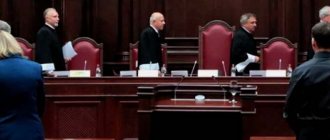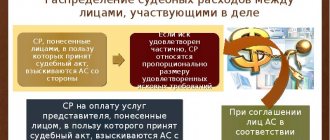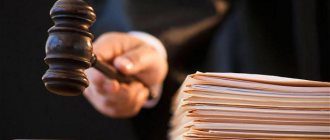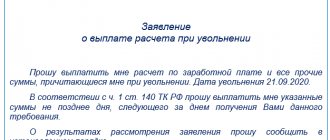The opponent presented fake evidence to the court: how to defend your interests?
An application for falsification of evidence must be submitted to the court of first instance in writing and justify why the evidence is a forgery. The court has no right to leave such an application without consideration. If you fail to convince the court that you are right, you can contact law enforcement agencies. The court's verdict in a criminal case will be the basis for reviewing the decision in a civil case.
Says:
Yulia Sheyanova,
Lawyer at Exiora Law Firm
“Falsification of evidence” means that the person involved in the case or his representative tried to distort the actual content of the evidence presented in civil, arbitration or criminal proceedings (Resolution of the Federal Antimonopoly Service of the North-Western District dated 07/09/2010 in case No. A56-69989/2009).
Falsification can be:
- production of a fake document in its entirety,
- entering deliberately false data into a document,
- forgery of the signature of the person certifying the document,
- counterfeiting of seals and stamps,
- mechanical removal of part of the text,
- removing text with chemical reagents and various solvents,
- introducing new words, phrases or individual characters into the document,
- pasting individual sheets, replacing them,
- photo pasting,
- aging of the document, etc.
If you are sure that the evidence presented in the case is falsified, you need to file an application for falsification of evidence.
Allegation of falsification of evidence
The main purpose of a statement of falsification of evidence is to exclude a forged document or other falsified evidence from the case file.
An application for falsification must be submitted in writing (Article 161 of the Arbitration Procedure Code of the Russian Federation). The court will not consider an oral statement (Resolution 15AAC dated March 21, 2021 in case No. A53-25471/2020).
If falsified evidence in the case materials became known already during the trial, the falsification of evidence can be reported orally. The court must reflect this statement in the protocol and explain to the person participating in the case who made an oral statement the right to submit a written statement (clause 36 of the Information Letter of the Presidium of the Supreme Arbitration Court of the Russian Federation dated August 13, 2004 No. 82). But then the application still needs to be submitted in writing.
It is important to file a statement of falsification when considering a case in the first instance . This requirement follows from Art. 268 of the Arbitration Procedure Code of the Russian Federation, according to which an appeal can consider evidence only if the applicant did not have the opportunity to present it to the court of first instance. The applicant will have to prove objective reasons why he was unable to file an application for falsification during the first consideration of the case (Determination of the Supreme Court of the Russian Federation of October 26, 2017 No. 309-ES17-9988 in case No. A07-2906/2016).
On a note
In some cases, a statement of falsification can be submitted not only to the court of first instance:
- if the appeal proceeds to consideration under the rules of the first instance, persons participating in the case have the right to make statements of falsification;
- If the appeal accepts new evidence, which was not in the case when considered in the court of first instance, then the persons participating in the case have the right to make a statement of falsification in relation to such evidence.
The statement must justify why you believe that the disputed evidence is falsified . If the formal requirements are met, the court cannot leave the application for falsification of evidence without consideration (Resolution of the Moscow District Court of August 15, 2016 in case No. A40-68558/15). However, the court may reject the application if it does not contain a justification for why the applicant considers the evidence to be fake (Part 1 of Article 159 and Article 161 of the Arbitration Procedure Code of the Russian Federation, Resolution of the Arbitration Court of the North-Western District of October 17, 2016 in case No. A56-12918/2014 , Resolution of the Administrative Court of the East Siberian District dated 07/09/2015 in case No. A19-9085/2014). As justification, you can point out, for example, contradictory data in copies of the same document presented by the applicant and his opponents, attach handwriting samples, and present your expert opinion.
Please note: a statement of falsification can significantly delay the dispute resolution process. The court will postpone the trial to verify its validity (Part 5 of Article 158 of the Arbitration Procedure Code of the Russian Federation).
Procedure of the court
Having received an application for falsification of evidence, the court:
- explains the criminal legal consequences - Art. 303 of the Criminal Code of the Russian Federation (liability for falsification of evidence) and Art. 306 of the Criminal Code of the Russian Federation (liability for knowingly false denunciation),
- excludes the disputed evidence from evidence in the case if the person presenting it agrees with this, or
- checks the validity of the statement about falsification of evidence if the person who presented this evidence objects to its exclusion from the list of evidence in the case (Article 161 of the Arbitration Procedure Code of the Russian Federation).
CASE STUDY
In the bankruptcy case of a citizen, a company in which this citizen was the general director and the only participant tried to be included in the register with its claims against the citizen.
Another creditor tried to counter this, believing that the agreement between the debtor and his company was falsified and aimed solely at creating artificial debt. This creditor outlined its arguments about the falsification of the agreement in its response to the company's application for inclusion in the register. Moreover, according to the audio transcript of the court session, after a break, the creditor’s representative, when asked by the trial court about whether the persons participating in the separate dispute had any petitions, explained that he had a petition to falsify the agreement. However, the court did not consider this petition, justifying its decision by the fact that a break in the court session was announced to issue a judicial act on the merits of the dispute. At the same time, before the break, the court of first instance did not announce the completion of the stage of examining the evidence.
The courts of three instances rejected the creditor's arguments, finding that he:
- did not file an application for falsification of the agreement in accordance with Art. 161 Arbitration Procedure Code of the Russian Federation,
- did not apply for the appointment of an examination of the prescription of the production of documents.
The Supreme Court of the Russian Federation did not agree with this decision and noted that:
- the court violated the requirements of the Arbitration Procedure Code of the Russian Federation by not accepting the creditor’s petition for falsification of the agreement for consideration,
- the court could not leave without consideration the application for falsification of the agreement due to the fact that the creditor did not apply for a forensic examination.
The dispute was returned for reconsideration to the court of first instance.
Ruling of the Supreme Court of the Russian Federation dated November 16, 2017 No. 307-ES17-1676 in case No. A56-71402/2015
To verify the validity of an allegation of falsification of evidence, the court may:
- appoint an examination.
The applicant may request an examination along with a statement of falsification. However, the court is not obliged to grant this request - this is its right, not its obligation. He may limit himself to the analysis of other arguments and evidence (clause 36 of the Information Letter of the Presidium of the Supreme Arbitration Court of the Russian Federation dated 08/13/2004 No. 82, Resolution of the Moscow District Arbitration Court dated 01/24/2020 in case No. A40-219648/2018);
- request other evidence.
Ordering an examination is not the only way that allows the court to verify the validity of an application for falsification of evidence. The court can evaluate the disputed evidence in conjunction with other evidence in the case by comparing it and identifying logical relationships: primary documents, testimony of witnesses, correspondence of the parties, draft documents, etc. (Resolution of the Court of Justice of the West Siberian District dated March 10, 2020 in case No. A45- 28521/2018, Decision of the Court of Justice of the Irkutsk Region dated 12/09/2019 in case No. A19-4859/2019);
- take other measures.
For example, in one case, the courts came to the conclusion that there were no facts confirming the falsification of the tax audit report, having interviewed the head of the tax inspectorate and the inspector (Determination of the Supreme Court of the Russian Federation of May 28, 2018 No. 302-KG18-5558 in case No. A19-17107/2016).
Contacting law enforcement agencies
If you are sure that the evidence is falsified, but you were unable to convince the court hearing the case of this, you can go another way - contact the Investigative Committee with a statement about the signs of a crime under Part 1 of Art. 303 of the Criminal Code of the Russian Federation, on the fact of falsification of evidence.
In this case, the consideration of the civil case is suspended until the consideration of the criminal case on the fact of falsification (clause 1, part 1, article 143 of the Arbitration Procedure Code of the Russian Federation, Resolution of the Central District Court of July 23, 2015 in case No. A64-2955/13).
If the court in a criminal case confirms that the evidence is falsified, this will have prejudicial significance for a civil case, the materials of which contain controversial evidence. A verdict in a criminal case on falsification of evidence is the basis for reviewing judicial acts in the corresponding civil case based on newly discovered circumstances (clause 4.1 of the Resolution of the Constitutional Court of the Russian Federation of December 21, 2011 No. 30-P).
On a note
For falsification of evidence, confirmed by a court verdict, the convicted person faces a fine of 100 thousand to 300 thousand rubles or in the amount of salary or other income for a period of 1 to 2 years, or compulsory work for a period of up to 480 hours, or corrective labor for a period up to 2 years, or arrest for up to 4 months (Part 1 of Article 303 of the Criminal Code of the Russian Federation, Appeal Resolution of the Moscow City Court dated 07/09/2020 in case No. 10-10962/2020).
Articles on the topic
“Balance of probabilities” versus “clear and convincing evidence”: what are the standards of proof? Interview with Roman Bevzenko
18.04.2021
5853
Process
It will be more difficult for a party to a contract to prove the validity of its claims in court if the other party is bankrupt. It will be even more difficult if...
More details
The plaintiff does not know the defendant’s address: what to include in the statement of claim?
13.01.2021
4203
Process
The information contained in the Unified State Register of Real Estate does not always contain passport data and information about the registration address of property owners. How on…
More details
If the court suspects forgery of documents in a civil case, it can itself transfer the information to the investigation
16.07.2020
1174
Process
In a new review of judicial practice, the RF Supreme Court made 10 non-obvious conclusions about the powers of the courts. Thus, the courts can, on their own initiative...
More details
Freedom of contract in civil proceedings: the RF Supreme Court allowed the parties to agree on evidence
21.05.2020
305
Process
Courts, when assessing evidence, should not ignore the rules established by law. Including the principle of freedom of contract. If the parties have agreed on exclusive...
More details
Tags: Arbitration Procedure Code of the Russian Federationevidenceprocedurecriminal casefalsificationpetitionshortread
Steps required for the court to recognize the fact of falsification
What should a party do if he doubts the truth of the evidence presented in court?
If the court does not notice the forgery, and the participant in the process has reasonable doubts about the authenticity of the documents, then one of the following options can be used:
- A statement filed during a lawsuit. It can be in writing, but this is not necessary - an oral petition will be sufficient (the main thing is to make sure that information about the petition is included in the minutes of the meeting).
- Submitting an application directly to the police at the location of the judicial authority considering the civil case.
It is worth noting that the first method is more preferable, since it is provided for in the administrative and civil legislation of the Russian Federation. However, there are cases when the courts refuse to consider the issue of falsification; in this case, it is advisable to contact the police.
After receiving the application, the court must order an examination that will determine the presence of forgery. Most often this is a handwriting or forensic technical examination. The first is designed to determine the authenticity of signatures on a document; the second is intended to determine the duration of the document, the method of compiling the document, and the unity of the text contained in it.
In addition, the examination may include both of the listed actions, in which case it is comprehensive.
An application for falsification must be submitted as early as possible - otherwise there is a risk that the court will make a decision based on false data, and consideration of the issue of the presence of forgery will be significantly more difficult and delayed.




